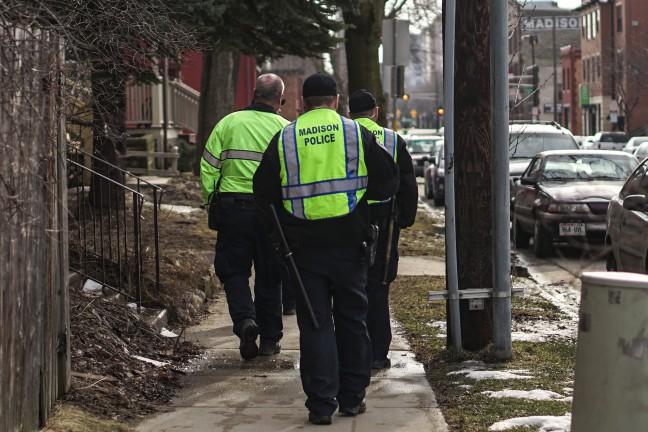University of Illinois Urbana-Champaign professor Lisa Cacho spoke Thursday night about reforming police brutality.
Cacho, an associate professor of Asian American studies, examined the police shooting of Antonio Zambrano-Montes, a shot and killed by Pasco Washington State police officers in 2015. The case garnered international criticism of police violence.
After Zambrano said, “No. Kill me, kill me, kill me,” and police tried taser attempts, the police shot him when they felt threatened from the rocks Zambrano-Montes threw at them, Cacho said.
“But, if you were to watch one of the horrific videos recorded by the bystanders, the prosecutor’s version of events would not be what you see,” Cacho said.
Zambrano-Montes was a mentally unstable man throwing rocks, who was shot while putting his hands up, Cacho said.
Cacho believes Zambrano-Montes was not posing a threat.
“It is evident the police followed their training, but it is also evident that they created the conditions that made them fear for their own lives,” Cacho said, “Zambrano did not start throwing the rocks in his hand at the officers until they [the police] tasered him.”
Wisconsin law enforcement memorial vandalized in wake of St. Louis protests
Officers are not trained to deal with suspects in a variety of ways, Cacho said. She said it is their job to contain a threat, but it is unnecessary to use lethal action.
But, it is not the officer’s power to decide when to kill, Cacho said.
Cacho said she believes the legal system is skewed to favor police officers in question, even when suspects are innocent.
“The police are never blameworthy, guilty, perpetrators, even when they are, because they are structurally blameless, legally innocent, ideal victims,” Cacho said.
Student, government leaders advocate for gun control in light of campus carry legislation
The cards were stacked against against Zambrano-Montes, as Washington has the most legally restrictive state law for finding a police officer guilty of unjustifiable or unreasonable murder, Cacho said. This makes it nearly impossible to prosecute a police officer for killing someone while in the line of duty.
Cacho challenges an officer’s code to “handle the threat first,” regardless of a suspect’s mental instability or possible language barrier.
“People like Zambrano cannot comply, because they may not understand the commands because they are not fluent in English, or because they may have a mental illness or disability, or they may be too high on drugs to know what’s going on,” Cacho said.
Ad hoc committee to review MPD’s policies on using deadly force
Cacho said she understands the officer’s training is not their fault, and they work in an unfair field, but they see criminals getting away and there is nothing the officers can do.
Cacho asked that society pauses before calling for reform, as it will only expand the criminal justice system. She hopes the lives of suspects are dependent on more than just a split second decision of an officer.
“Stop the threat, contain the danger, incapacitate the suspect,” Cacho said.

















